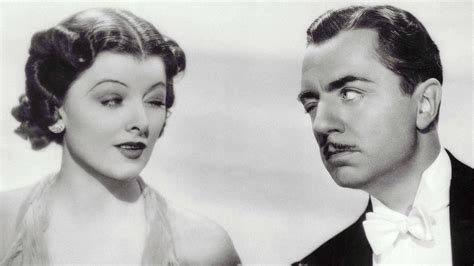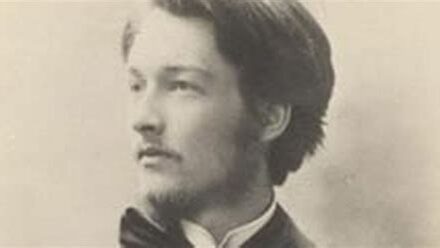The title above may appear to be of trivial importance, or of no importance at all. But to me, as a lifelong film buff, it’s akin to declaring a change in sexual orientation. All of my adult life, I have placed the date of the Academy Awards on my calendar, making sure that night would be free, no matter where I might be traveling or what responsibilities I had to honor. Oscar night was sacrosanct.
After the 2017 Golden Globe and SAG Awards, I’m certain the 2017 Academy Awards will be nothing less than a President Donald Trump hate-fest. I voted for Donald Trump and Mike Pence, along with another 61,201,03 American citizens. I wish him, his family, his administration, and our nation well. I want to make “American Great” again. I will not subject myself to the bait-and-switch of an Academy Awards show turned into political theater to attack the newly-elected President of the United States.
To give you a foretaste of what Oscar night will offer: Judd Apatow tweeted that after the election of Trump, “I feel like I’ve just been raped and I just don’t know if I’m going to get murdered.” This comes from the writer-director of some of the highest-grossing comedies of the past decade: The 40-Year-Old Virgin (2005), Knocked Up (2007), and Funny People (2009),
Some might ask why it took me so long to turn the channel. I would like to think it’s a testimony to my love of movies that I lasted this long. When I started watch the Oscars, Bob Hope was the master of ceremonies which lasted, with a few exceptions, until 1968 when I was a college freshman. Hope would return one more time in 1978, but the next year Johnny Carson took over for five of the next six years. In 1985 Jack Lemmon would host one more time after being a host or co-host three previous times.
The only political excitement I recall during the Hope-to-Carson era was the surprise appearance of Sacheen Littlefeather to receive Marlon Brando’s Oscar for “The Godfather” in 1973. Both Liv Ullman and Roger Moore, presenters for the Best Actor Award, looked appropriately surprised, but the statement about Native Americans was made and the show went on.
Two years later, 1975, when Bert Schneider, winner for Best Documentary, used his acceptance speech to make an anti-Vietman statement, co-host Bob Hope handed a note to co-host Frank Sinatra to read in response: “I’ve been asked by the academy to make the following statement regarding a statement that was made by a winner. ‘We are not responsible for any political references made on the program, and we are sorry they had to take place this evening.’” Another co-host, Shirley MacLaine, fumed.
I would, however, date the politicization of the Oscars beginning in 1977 when the Best Actress winner, Vanessa Redgrave, declared her support for the Palestine Liberation Organization: “the threats of a small bunch of Zionist hoodlums whose behavior is an insult to the stature of Jews all over the world and their great and heroic record of struggle against fascism and oppression.” I recall being shocked by the virulence of her words in the context of a event to celebrate filmmaking.
Later in the evening, Paddy Chayefsky responded to Redgrave, “I would like to say, personal opinion, of course, that I’m sick and tired of people exploiting the Academy Awards for the propagation of their own personal political propaganda. I would like to suggest to Ms. Redgrave that her winning an Academy Award is not a pivotal moment in history, does not require a proclamation, and a simple ‘thank you’ would have sufficed.”
Chayefsky’s plea has not been heeded by subsequent generations of Academy Award participants.
There have been other excellent hosts, notably Billy Crystal (9 times), whose self-deprecating humor ameliorated the rising tide of politicized acceptance speeches. For example, Crystal was the host in 1993 when Richard Gere, talked about Tibet before presenting the award for Art Direction. The same evening Susan Sarandon and Tim Robbins used the stage to demand the closure of the U.S. government’s internment camp in Cuba for Haitians with HIV and AIDS.
The Oscars started to hit their nadir in 2003. Accepting his award for Best Documentary, Michael Moore blasted President George W. Bush for the invasion of Iraq: “We live in fictitious times that elect a fictitious president. We live in a time where we have a man who sends us to war for fictitious reasons. Shame on you, Mr. President.” And in 2005, politics invaded the host’s traditional opening monologue when Chris Rock went after the just reelected president. “When Bush got into office, there was a surplus of money. Now there’s like a $70 trillion deficit. Now just imagine you worked at the Gap. You closin’ out your register and you’re $70 trillion short. The average person would get in trouble for something like that, right? Not Bush—no…”
Since Hollywood idolized him, the Obama years brought some relief, but there will still the contentious social issues, particularly abortion and gay marriage, requiring the expert comment of actors. Best Actor and Best Screenwriter winners in 2009, Sean Penn, and Dustin Lance Black, used their allotted time to tout gay rights. Patricia Arquette used her time in accepting the Best Supporting Actress Award in 2015 to tout women’s “rights.”
The line-up of Oscar presenters this year are include the rank-and-file of the Trump-haters — Emma Stone, Amy Adams, Samuel L. Jackson, Scarlett Johansson, Dakota Johnson, Shirley MacLaine, and Hailee Steinfeld. First-time Oscar host, Jimmy Kimmel, is trying to lower the political temperature of the show by telling the Hollywood Reporter that he doesn’t “think the [Oscar] audience in its entirety is as liberal as people in Middle America imagine it is.” Given the egos involved, it’s highly doubtful any of the celebrity presenters or award recipients will take the hint. And Kimmel knows it — “the celebrities, most of them are pretty liberal.”
But, thankfully, we have an alternative to the 89th Academy Awards. At 8 pm on the same Saturday evening of February 26, Turner Movie Classics (TCM) will be showing “The Thin Man” (1934), starring Myrna Loy, William Powell, and Asta. I won’t be alone in switching the channel from the Oscars to “The Thin Man.” Why? Because W. S. Van Dyke’s comedy classic, based upon the novel by Dashiell Hammett, will far greater tribute to the movies than sitting through three hours of self-important tantrums. As the great screenwriter Paddy Chayefsky put it, “winning an Academy Award is not a pivotal moment in history, does not require a proclamation, and a simple ‘thank you’ would have sufficed.”















Thank you! I would feel the same way if the commentary were toward conservative issues as well. The Academy should honor and the great professionals and historical moments in their art. That is their primary purpose and best function. No one can that job as well, but they have abandoned that for what is seemingly, a greener pasture. Sad indeed.
Deal, you have expressed my feelings perfectly. I love the Oscars, but I’m done watching them. I refuse to subject myself to celebrity-pontificating at an event that is supposed to be fun.
Yes, Tom, it’s just gotten so out of hand!